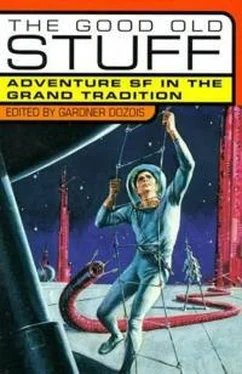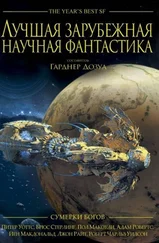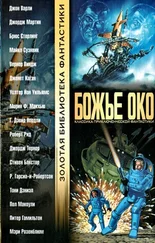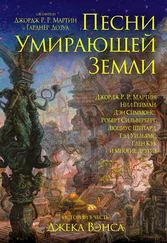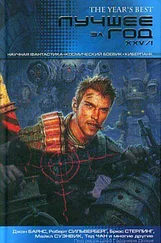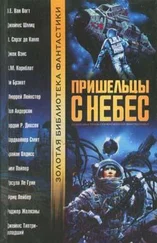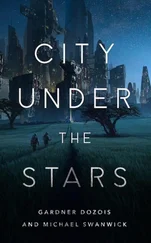Гарднер Дозуа - The Good Old Stuff
Здесь есть возможность читать онлайн «Гарднер Дозуа - The Good Old Stuff» весь текст электронной книги совершенно бесплатно (целиком полную версию без сокращений). В некоторых случаях можно слушать аудио, скачать через торрент в формате fb2 и присутствует краткое содержание. Год выпуска: 1998, ISBN: 1998, Издательство: St. Martin's Griffin, Жанр: Фантастика и фэнтези, на английском языке. Описание произведения, (предисловие) а так же отзывы посетителей доступны на портале библиотеки ЛибКат.
- Название:The Good Old Stuff
- Автор:
- Издательство:St. Martin's Griffin
- Жанр:
- Год:1998
- ISBN:0-312-19275-4
- Рейтинг книги:3 / 5. Голосов: 1
-
Избранное:Добавить в избранное
- Отзывы:
-
Ваша оценка:
- 60
- 1
- 2
- 3
- 4
- 5
The Good Old Stuff: краткое содержание, описание и аннотация
Предлагаем к чтению аннотацию, описание, краткое содержание или предисловие (зависит от того, что написал сам автор книги «The Good Old Stuff»). Если вы не нашли необходимую информацию о книге — напишите в комментариях, мы постараемся отыскать её.
The Good Old Stuff — читать онлайн бесплатно полную книгу (весь текст) целиком
Ниже представлен текст книги, разбитый по страницам. Система сохранения места последней прочитанной страницы, позволяет с удобством читать онлайн бесплатно книгу «The Good Old Stuff», без необходимости каждый раз заново искать на чём Вы остановились. Поставьте закладку, и сможете в любой момент перейти на страницу, на которой закончили чтение.
Интервал:
Закладка:
He recalled them in a final agony of hope. There, he thought, that one, that one. Let me fall on that one. He strained to hold the ledge image he wanted and to repeat, many times, the command that might save his life. His last dreary thought was that here was the answer to his doubts. The Rull was alive. Blackness came like a curtain of pure essence of night.
From the far galaxy had he come, a cold, remorseless leader of leaders, the yeli, Meesh, the Iin of Ria, the high Aaish of Yeel. And other titles, and other positions, and power. Oh, the power that he had, the power of death, the power of life and the power of the Leard ships.
He had come in his great anger to discover what was wrong. Many years before, the command had been given: Expand into the Second Galaxy. Why were they-who-could-not-be-more-perfect so slow in carrying out these instructions? What was the nature of the two-legged creatures whose multitudinous ships, impregnable planetary bases and numerous allies had fought those-who-possessed-Nature’s-supreme-nervous-system to an impasse?
“Bring me a live human being!”
The command echoed to the ends of Riatic space. It produced a dull survivor of an Earth cruiser, a sailor of Low degree with an I.Q. of ninety-six, and a fear index of two hundred and seven. The creature made vague efforts to kill himself, and squirmed on the laboratory tables, and finally escaped into death when the scientists were still in the beginning of the experiments which he had ordered to be performed before his own eyes.
“Surely this is not the enemy.”
“Sire, we capture so few that are alive. Just as we have conditioned our own, so do they seem to be conditioned to kill themselves in case of capture.”
“The environment is wrong. We must create a situation where the captured does not know himself to be a prisoner. Are there any possibilities?”
“The problem will be investigated.”
He had come, as the one who would conduct the experiment, to the sun where a man had been observed seven periods before. The man was in a small craft—as the report put it—“which was precipitated suddenly out of subspace and fell toward this sun. The fact that it used no energy aroused the suspicions of our observing warship, which might otherwise have paid no attention to so small a machine. And so, because an investigation was made immediately, we have a new base possibility, and of course an ideal situation for the experiment.”
The report continued: “No landings have been made yet, as you instructed; so far as we know, our presence is not suspected. It may be assumed that there was an earlier human landing on the third planet, for the man quickly made that curious mountaintop his headquarters. It will be ideal for your purposes.”
A battle group patrolled the space around the sun. But be came down in a small ship, and because he had contempt for his enemy, he had flown in over the mountains, fired his disabling blast at the ship on the ground—and then was struck by a surprisingly potent return blast that sent his machine spinning to a crash. Death almost came in those seconds. But he crawled out of his control chair, shocked but still alive. With thoughtful eyes, he assessed the extent of the disaster that had befallen him. He had issued commands that he would call when he wanted them to return. But he could not call. The radio was shattered beyond repair. He had an uneasy sensation when he discovered that his food was poisoned.
Swiftly, he stiffened to the necessity of the situation. The experiment would go on, with one proviso. When the need for food became imperative, he would kill the man, and so survive until the commanders of the ships grew alarmed and came down to see what had happened.
He spent part of the sunless period exploring the cliff’s edge. Then he hovered on the perimeter of the man’s defensor energies, studying the lifeboat and pondering the possible actions the other might take against him. Finally, with a tireless patience, he examined the approaches to his own ship. At key points, he drew the lines-that-could-seize-the-minds-of-men. There was satisfaction, shortly after the sun came up, in seeing the enemy “caught” and “compelled.” The satisfaction had but one drawback. He could not take the advantage of the situation that he wanted. The difficulty was that the man’s blaster had been left focused on his main airlock. It was not emitting energy, but the Rull did not doubt that it would fire automatically if the door opened.
What made the situation serious was that, when he tried the emergency exit, it was jammed. It hadn’t been. With the forethought of his kind, he had tested it immediately after the crash. Then, it opened.
Now it didn’t. The ship, he decided, must have settled while he was out during the sunless period. Actually, the reason for what had happened didn’t matter. What counted was that he was locked in just when he wanted to be outside. It was not as if he had definitely decided to destroy the man immediately . If capturing him meant gaining control of his food supply, then it would be unnecessary to give him death. It was important to be able to make the decision, however, while the man was helpless. And the further possibility that the elled fall might kill him made the yeli grim. He didn’t like accidents to disturb his plans.
From the beginning the affair had taken a sinister turn. He had been caught up by forces beyond his control, by elements of space and time which he had always taken into account as being theoretically possible, but he had never considered them as having personal application.
That was for the depths of space where the Leard ships fought to extend the frontiers of the perfect ones. Out there lived alien creatures that had been spawned by Nature before the ultimate nervous system was achieved. All those aliens must die because they were now unnecessary, and because, existing, they might accidentally discover means of upsetting the balance of Yeelian life. In civilized Ria accidents were forbidden.
The Rull drew his mind clear of such weakening thoughts. He decided against trying to open the emergency door. Instead, he turned his blaster against a crack in the hard floor. The frustrators blew their gases across the area where he had worked, and the suction pumps caught the swirling radioactive stuff and drew it into a special chamber. But the lack of an open door as a safety valve made the work dangerous.
Many times he paused while the air was cleansed, so that he could come out again from the frustrating chamber to which he retreated whenever the heat made his nerves tingle—a more reliable guide than any instrument that had to be watched.
The sun was past the meridian when the metal plate finally lifted clear and gave him an opening into the gravel and rock underneath. The problem of tunneling out into the open was easy except that it took time and physical effort. Dusty and angry and hungry, the Rull emerged from the hole near the center of the clump of trees beside which his craft had fallen. His plan to conduct an experiment had lost its attraction. He had obstinate qualities in his nature, but he reasoned that this situation could be reproduced for him on a more civilized level.
No need to take risks or to be uncomfortable. He would kill the man and chemically convert him to food until the ships came down to rescue him. With hungry gaze, he searched the ragged, uneven east cliff, peering down at the ledges, crawling swiftly along until he had virtually circumvented the tableland. He found nothing he could be sure about. In one or two places the ground looked lacerated as by the passage of a body, but the most intensive examination failed to establish that anyone had actually been there.
Somberly, the Rull glided toward the man’s lifeboat. From a safe distance, he examined it. The defense screens were up, but he couldn’t be sure they had been put up before the attack of the morning, or had been raised since then, or had come on automatically at his approach.
Читать дальшеИнтервал:
Закладка:
Похожие книги на «The Good Old Stuff»
Представляем Вашему вниманию похожие книги на «The Good Old Stuff» списком для выбора. Мы отобрали схожую по названию и смыслу литературу в надежде предоставить читателям больше вариантов отыскать новые, интересные, ещё непрочитанные произведения.
Обсуждение, отзывы о книге «The Good Old Stuff» и просто собственные мнения читателей. Оставьте ваши комментарии, напишите, что Вы думаете о произведении, его смысле или главных героях. Укажите что конкретно понравилось, а что нет, и почему Вы так считаете.
